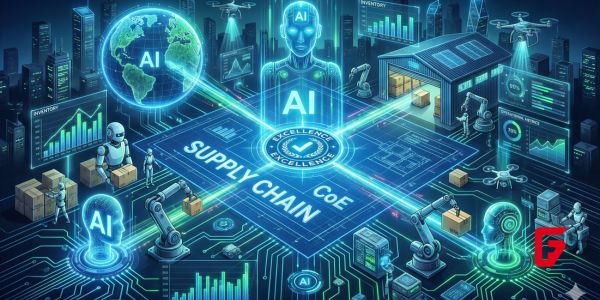By futureTEKnow | Editorial Team
Delve, an AI startup founded by two young MIT dropouts, Karun Kaushik and Selin Kocalar, recently secured $32 million in Series A funding at a $300 million valuation led by Insight Partners. This rapid growth highlights how AI-driven automation is transforming the traditionally tedious and costly compliance landscape.
Compliance processes—such as SOC 2, HIPAA, GDPR, and ISO certifications—are essential yet notoriously time-consuming and complex. Organizations spend millions of hours annually gathering evidence, filling out spreadsheets, and coordinating audits. Delve’s platform replaces much of this manual busywork with AI agents that automatically collect compliance evidence across internal tools and web apps, eliminating the need for manual screenshots or API integrations.
This automation enables firms to close enterprise deals faster and reduce operational risks by maintaining real-time compliance monitoring.
Starting from a cramped dorm room, Delve’s founders have expanded their customer base from 100 companies to over 500 within months, including leading AI startups like Lovable, Bland, and Wispr Flow. Insight Partners, along with chief information security officers from Fortune 500 companies, demonstrated high confidence in Delve’s vision, marking a tenfold valuation increase since their seed round earlier this year. The startup has effectively proven its profitable business model while doubling revenue and streamlining quality compliance standards for fast-growing enterprises.
Initially focused on an AI medical scribe, the founders encountered significant obstacles navigating HIPAA compliance themselves. The arduous and costly process inspired them to pivot entirely toward compliance automation. Today, Delve aims not only to streamline compliance but to modernize entire back-office operations across cybersecurity, internal governance, and risk management. Their AI-driven approach is positioned to save “a billion hours of busywork,” helping companies innovate rather than get bogged down in paperwork.
While broader AI agents emerge from major labs like OpenAI, Delve distinguishes itself through deep domain knowledge embedded in its platform, continuously adapting to evolving regulations and company-specific interpretations. This specialization assures clients that compliance automation remains precise, reliable, and aligned with stringent and shifting regulatory requirements.
With its latest funding, Delve plans to enhance its AI capabilities, expand its team, and extend support to new compliance frameworks. The startup exemplifies how marrying AI with real-world business challenges can unlock efficiency, accelerate growth, and reduce risk in today’s complex regulatory environment. For enterprises eager to convert compliance from a blocker to a business enabler, the future is clearly automated.

AWS frontier agents introduce a new era of autonomous AI coders that can build, secure, and run applications for days at a time, acting like virtual teammates across dev, security, and DevOps while engineers retain final control over production changes.

Explore the cutting-edge ways AI is enhancing Lean Six Sigma, from real-time process insights to predictive controls, ushering in a new era of operational excellence and efficiency.

Facing supply chain challenges in 2025? High-performing teams leverage AI for risk management, demand forecasting, supplier analytics, and end-to-end visibility to ensure business continuity and resilience.

Craft an AI-powered supply chain Center of Excellence that unifies control tower visibility, analytics, and inventory optimization into one strategic hub. Explore this blueprint to learn how a modern supply chain CoE drives resilience, smarter decisions, and operational excellence in the age of AI.

Bridgit Mendler’s Northwood Space is pioneering mass-produced ground stations, enabling scalable, high-speed connectivity for the new era of satellite networks and megaconstellations.

SpaceX aims to nearly double launches from Vandenberg in 2025, facing support from federal agencies but strong objections from the state and local communities.

Traditional Medicare will pilot AI-assisted prior authorization in 2026 across six states, focusing on high-risk outpatient services. Clinicians retain final say, but incentives and access concerns loom as CMS tests fraud reduction and “gold card” exemptions. Here’s what providers and patients should know.

OpenArt’s new “one-click story” compresses scripting, visuals, and edits into ready-to-post short videos—fueling viral growth and a fresh IP debate. We break down how it works, adoption signals, what’s next (multi-character, mobile), and practical guardrails creators and brands should follow to stay original and compliant.

OpenAI’s o3 swept the Kaggle AI chess tournament, defeating xAI’s Grok 4–0. The victory fueled the intense rivalry between Altman and Musk, reshaping AI benchmarks.

NASA and Google’s AI-powered Crew Medical Officer Digital Assistant enables autonomous diagnoses for astronauts on Mars missions, redefining remote healthcare for space and Earth.

Pinterest’s CEO confirms that fully agentic AI shopping is years away, as the platform invests in AI-powered tools to enhance discovery, inspiration, and personalized shopping experiences for millions.

Shopify’s new AI shopping tools are transforming e-commerce, letting agents and chatbots deliver smooth, personalized shopping and checkout experiences across platforms. Learn how these innovations reshape online retail.
To provide the best experiences, we use technologies like cookies to store and/or access device information. Consenting to these technologies will allow us to process data such as browsing behavior or unique IDs on this site. Thanks for visiting futureTEKnow.